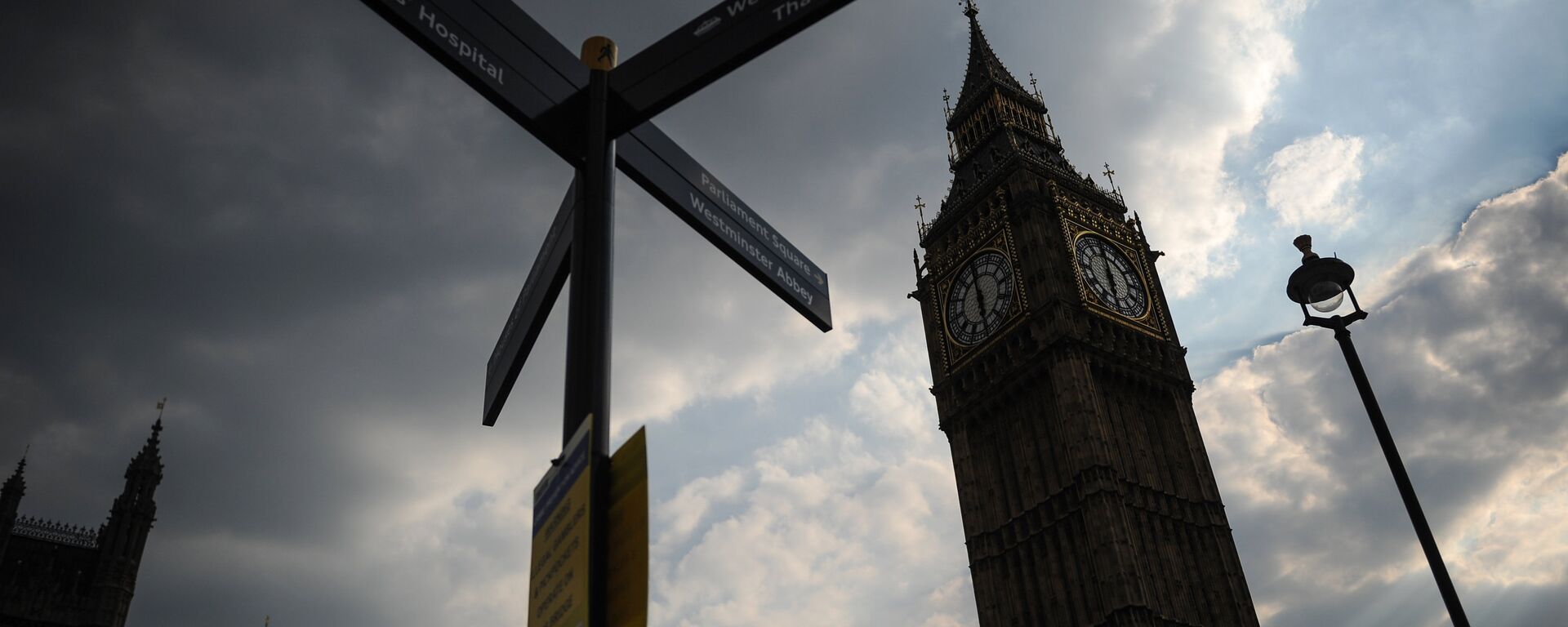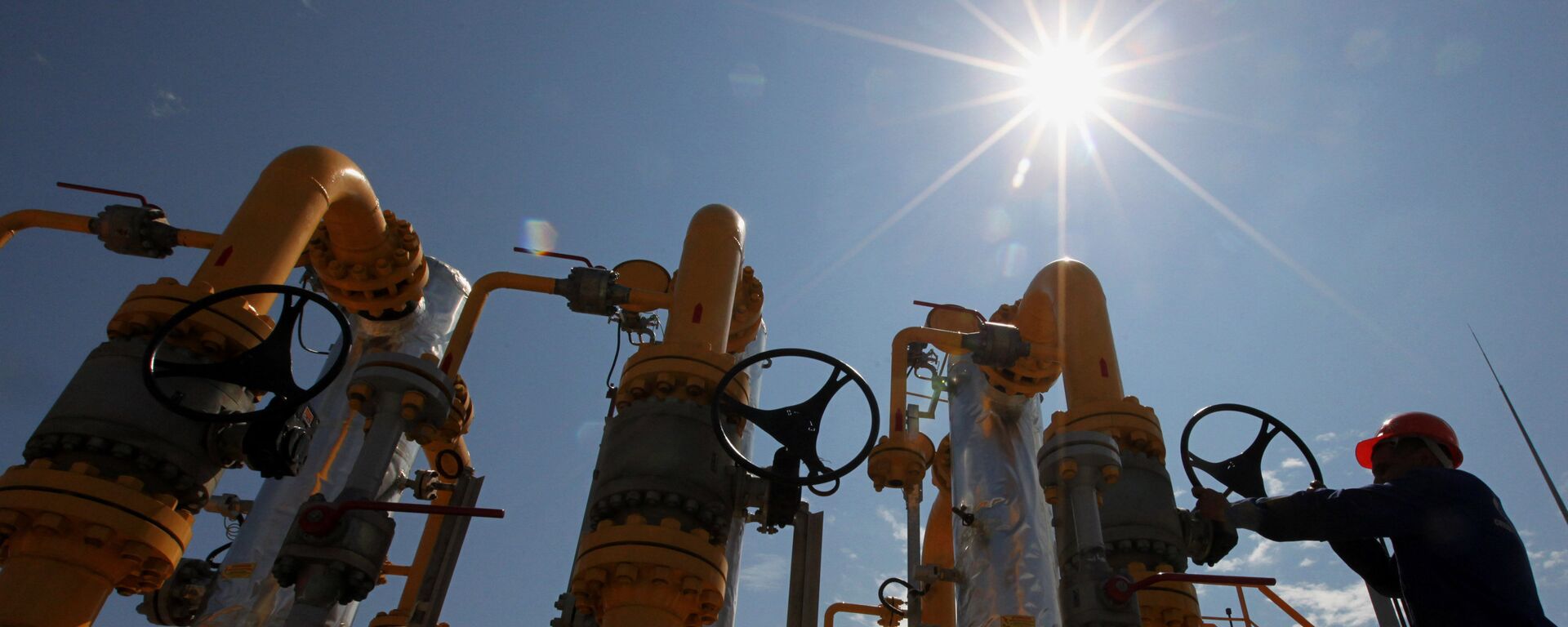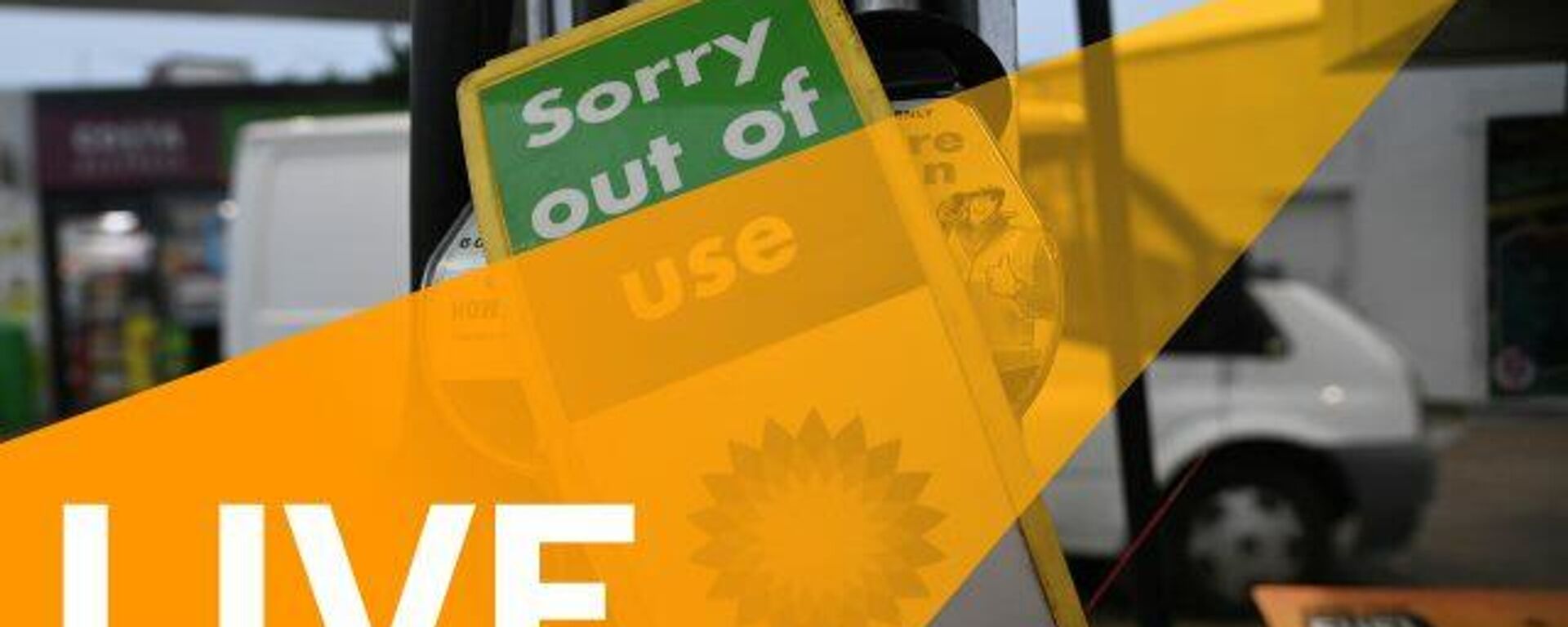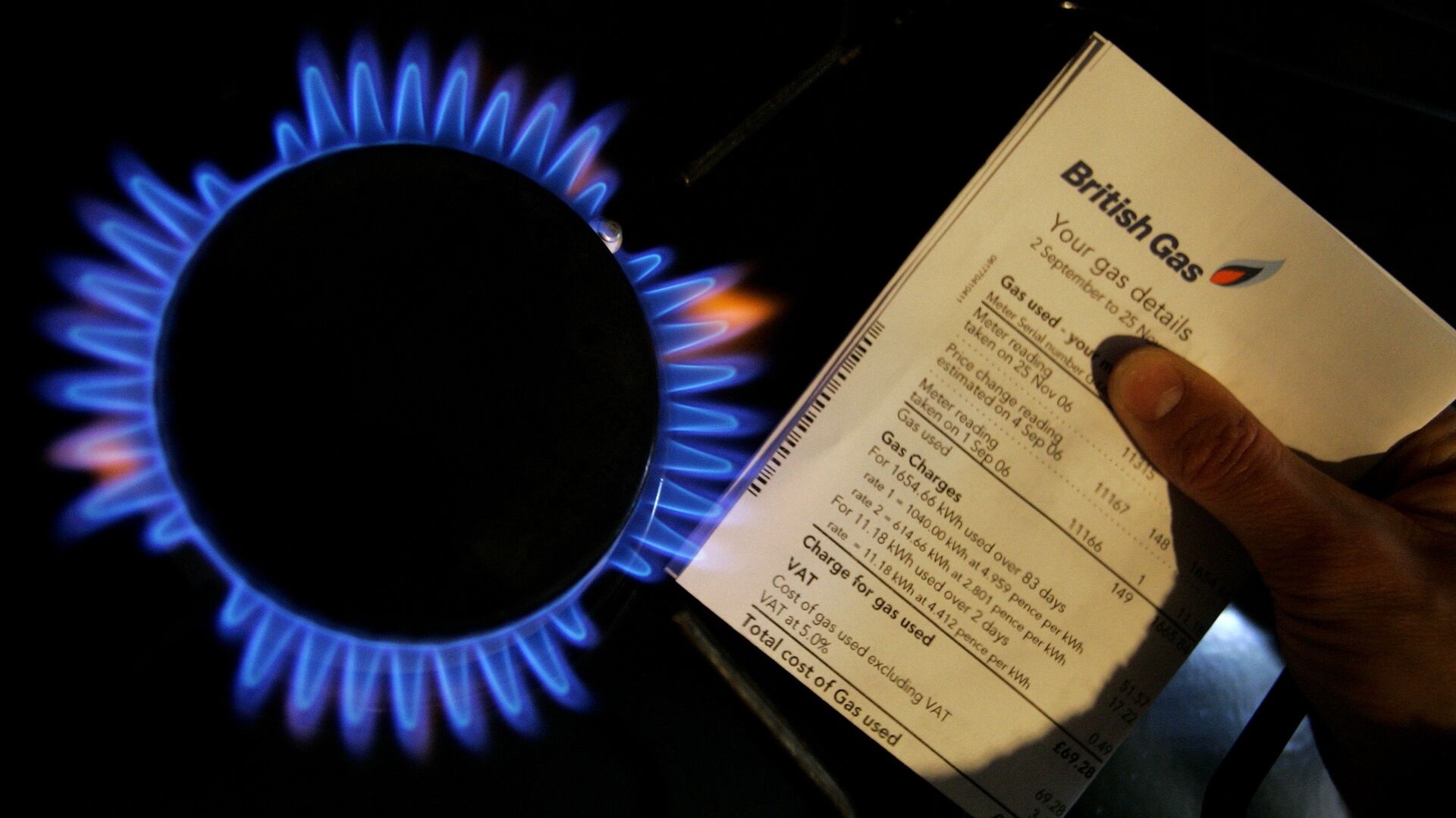https://sputnikglobe.com/20210929/nearly-a-quarter-million-brits-left-in-the-lurch-as-energy-suppliers-go-belly-up-amid-gas-crunch-1089524850.html
Nearly a Quarter Million Brits Left in the Lurch as Energy Suppliers Go Belly Up Amid Gas Crunch
Nearly a Quarter Million Brits Left in the Lurch as Energy Suppliers Go Belly Up Amid Gas Crunch
Sputnik International
About a dozen domestic gas suppliers with a customer base of over 1.5 million households have collapsed in recent weeks amid a region wide spike in natural gas... 29.09.2021, Sputnik International
2021-09-29T16:51+0000
2021-09-29T16:51+0000
2022-12-19T13:53+0000
uk fuel crisis
crisis
natural gas
prices
https://cdn1.img.sputnikglobe.com/img/105936/86/1059368607_0:224:3300:2080_1920x0_80_0_0_b00540f1361a0b879859bcdb7e2111b9.jpg
Three more energy providers with a combined customer base of about 233,000 people have folded amid the spike in wholesale natural gas prices, a British energy regulator confirmed on Wednesday.Ofgem says the affected ratepayers will continue to receive gas and electricity, with suppliers taking over the bankrupt companies’ contracts to contact customers. The regulator is responsible for allocating customers to new gas and electricity providers when a provider goes belly up.The collapse of small and medium-sized energy providers began in August – it came about due to fixed rate commitments to customers and higher-than-expected wholesale natural gas prices.As many as 11 million British households are expected to see a jump in energy tariffs by £139 per year to an average of £1,277 starting 1 October, with nearly all major sellers setting a price at or above this rate, making it virtually impossible for people to shop around to get a better deal.Customers are expected to foot the bill for the busted up firms, with the Financial Times reporting earlier this week that ratepayers will be made to pony up around £820 million for the seven companies that collapsed earlier.The crisis has sparked criticism of the Johnson government over its refusal to offer government assistance to bail out energy providers or make an effort to bring down prices through subsidies, as well as concerns that recent efforts to switch to alternative energy sources such as wind and solar power have left the country unprepared for higher gas prices.On Wednesday, Labour Party leader Kier Starmer told a party conference in Brighton that Johnson appears to have put “no plan in place” to deal with the increase in gas and electricity costs.“Why is there no plan in place? A tank of fuel already costs £10 more than it did at the start of the year. Gas and electricity bills up. Gaps on the supermarket shelves. Rent up, especially for those on the lowest incomes. Yet at this very moment, the government is putting up tax on working people. Putting up tax on small businesses and slashing Universal Credit. We have a fuel crisis, a pay crisis, a goods crisis and a cost of living crisis – all at the same time,” Starmer said.Also on Wednesday, ICE Futures trading data showed gas future contracts soaring to a new all-time high of over $1,050 (£782) per 1,000 cubic meters in European trading. Prices more than doubled from $515 (£383) in early August, and jumped a whopping 250 percent since the start of 2021.The unprecedented spike in gas prices has been attributed to a number of factors, including last year’s unusually cold winter, which sparked growing demand, competition for gas supplies with the Asian market, a drop in energy gained from renewable sources, and a fire at a UK plant which damaged a major power cable carrying electricity from France to Britain.The United States and Germany’s Green Party have also blamed Moscow for the shortages, accusing Russian gas giant Gazprom of “inexplicably low” sales to the continent compared to previous years. Moscow dismissed the allegations and said that the company has fulfilled all obligations in existing supply agreements and is prepared to take on new commitments. Russia expects the commissioning of Nord Stream 2, which Washington spent two years trying to torpedo, to help ease shortages and prices considerably. The pipeline was recently completed but has yet to be commissioned due to the need for regulatory approval from German and European regulators.Britain’s natural gas price crisis has already had knock-on effects on industry, including the fertiliser production industry – sparking fears that food supplies may be affected later on down the line. The government has insisted that there's no reason for concern.The gas price crisis comes amid a separate emergency over shortages of petrol and diesel fuel caused by a lack of tanker drivers and panic buying by consumers. That crisis has prompted London to mobilise the military to help resolve the shortfall. On Tuesday, the Petrol Retailers Association, which represents about 5,500 independent fuel retailers across the country, indicated that about 37 percent of businesses have reported running dry of fuel, down from over 50 percent a week ago.Prime Minister Johnson has advised Britons to be “confident” to go about their business as normal this week, citing an improved market situation.
https://sputnikglobe.com/20210927/it-never-rains-but-it-pours-how-energy-crisis-brexit--covid-may-backfire-on-uk-this-christmas-1089452714.html
https://sputnikglobe.com/20210923/its-a-gas-russia-blamed-for-europes-fuel-crisis-1089333090.html
https://sputnikglobe.com/20210929/long-lines-persist-amid-ongoing-fuel-shortages-in-uk-1089524440.html
Sputnik International
feedback@sputniknews.com
+74956456601
MIA „Rossiya Segodnya“
2021
News
en_EN
Sputnik International
feedback@sputniknews.com
+74956456601
MIA „Rossiya Segodnya“
Sputnik International
feedback@sputniknews.com
+74956456601
MIA „Rossiya Segodnya“
crisis, natural gas, prices
crisis, natural gas, prices
Nearly a Quarter Million Brits Left in the Lurch as Energy Suppliers Go Belly Up Amid Gas Crunch
16:51 GMT 29.09.2021 (Updated: 13:53 GMT 19.12.2022) About a dozen domestic gas suppliers with a customer base of over 1.5 million households have collapsed in recent weeks amid a region wide spike in natural gas prices.
Three more energy providers with a combined customer base of about 233,000 people have folded amid the spike in wholesale natural gas prices, a British energy regulator confirmed on Wednesday.
Britain’s Office of Gas and Electricity Markets (Ofgem) regulator announced that Enstroga, Symbio Energy, and Igloo Energy – accounting for 6,000, 48,000, and 179,000 customers respectively – have ceased their operations.
Ofgem says the affected ratepayers will continue to receive gas and electricity, with suppliers taking over the bankrupt companies’ contracts to contact customers. The regulator is responsible for allocating customers to new gas and electricity providers when a provider goes belly up.
The collapse of small and medium-sized energy providers began in August – it came about due to fixed rate commitments to customers and higher-than-expected wholesale natural gas prices.
Over 1.5 million customers have been affected by the collapse to date, with their new providers, including British Gas, EDF Energy and E.on, jacking up rates to account for the wholesale price jump, and other expenses.
As many as 11 million British households are expected to see a jump in energy tariffs by £139 per year to an average of £
1,277 starting 1 October, with nearly all major sellers setting a price at or above this rate, making it virtually impossible for people to shop around to get a better deal.
Customers are expected to foot the bill for the busted up firms, with the Financial Times reporting earlier this week that ratepayers will be made to pony up around £820 million for the seven companies that collapsed earlier.
The crisis has
sparked criticism of the Johnson government over its refusal to offer government assistance to bail out energy providers or make an effort to bring down prices through subsidies, as well as concerns that recent efforts to switch to alternative energy sources such as wind and solar power have left the country unprepared for higher gas prices.

27 September 2021, 15:25 GMT
On Wednesday, Labour Party leader Kier Starmer told a party conference in Brighton that Johnson appears to have put “no plan in place” to deal with the increase in gas and electricity costs.
“Why is there no plan in place? A tank of fuel already costs £10 more than it did at the start of the year. Gas and electricity bills up. Gaps on the supermarket shelves. Rent up, especially for those on the lowest incomes. Yet at this very moment, the government is putting up tax on working people. Putting up tax on small businesses and slashing Universal Credit. We have a fuel crisis, a pay crisis, a goods crisis and a cost of living crisis – all at the same time,” Starmer
said.
Also on Wednesday, ICE Futures trading data
showed gas future contracts soaring to a new all-time high of over $1,050 (£782) per 1,000 cubic meters in European trading. Prices more than doubled from $515 (£383) in early August, and jumped a whopping 250 percent since the start of 2021.
The unprecedented spike in gas prices has been attributed to a number of factors, including last year’s unusually cold winter, which sparked growing demand, competition for gas supplies with the Asian market, a drop in energy gained from renewable sources, and a fire at a UK plant which damaged a major power cable carrying electricity from France to Britain.
The United States and Germany’s Green Party have also blamed Moscow for the shortages, accusing Russian gas giant Gazprom of “inexplicably low” sales to the continent compared to previous years. Moscow dismissed the allegations and
said that the company has fulfilled all obligations in existing supply agreements and is prepared to take on new commitments. Russia expects the commissioning of Nord Stream 2, which Washington
spent two years trying to torpedo, to help ease shortages and prices considerably. The pipeline was recently completed but has yet to be commissioned due to the need for regulatory approval from German and European regulators.

23 September 2021, 11:56 GMT
Britain’s natural gas price crisis has already had knock-on effects on industry, including the fertiliser production industry – sparking fears that food supplies may be affected later on down the line. The government has insisted that there's no reason for concern.
The gas price crisis comes amid a separate emergency over shortages of petrol and diesel fuel caused by a lack of tanker drivers and panic buying by consumers. That crisis has prompted London
to mobilise the military to help resolve the shortfall. On Tuesday, the Petrol Retailers Association, which represents about 5,500 independent fuel retailers across the country, indicated that about 37 percent of businesses have reported running dry of fuel, down from over 50 percent a week ago.
Prime Minister Johnson has advised Britons to be “confident” to go about their business as normal this week, citing an improved market situation.

29 September 2021, 16:41 GMT





